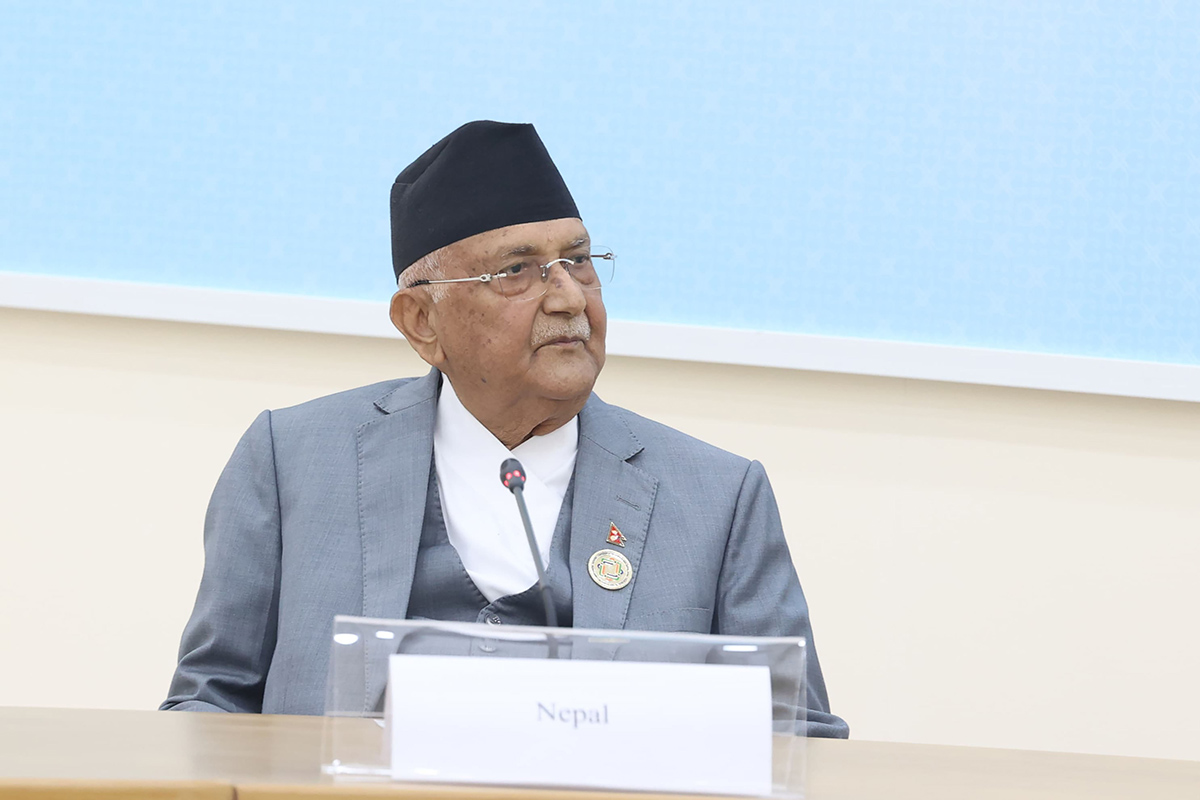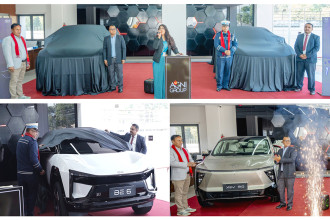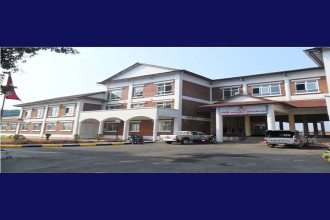
AWAZA, TURKMENISTAN: Prime Minister KP Sharma Oli has said that geography must no longer dictate a country’s destiny. Delivering the keynote address at the United Nations Conference on Landlocked Developing Countries (LLDCs) in Awaza, Turkmenistan, on Tuesday, he insisted that strengthened partnerships, smart investments and collective resolve could turn the barriers of being landlocked into gateways of opportunity.
PM Oli told delegates that Nepal firmly believes regional solidarity and global cooperation are vital to bridging the development divide. He expressed confidence that, with continued support from its neighbours India and China and the broader international community, Nepal could overcome the physical constraints of its topography.
Highlighting Nepal’s commitment to the LLDC family, Oli said his government stood ready not only as a beneficiary of change but also as an active partner in shaping it. He urged all LLDCs to unite around a shared vision of connectivity powered by innovation, resilience, inclusion and shared prosperity.
He cautioned that landlocked developing countries still face persistent structural obstacles, including geographical isolation, dependence on transit nations, inadequate transport networks and limited integration into regional and global markets. These challenges, he added, are particularly acute for half of the LLDCs that also qualify as least developed countries, whose development remains hindered by their very geography.
Reflecting on two decades of the Almaty and Vienna Programmes of Action, PM Oli noted that many LLDCs continue to grapple with deficient infrastructure, high trade and transit costs, limited economic diversification, low private investment and heightened vulnerability to climate change and disasters. He argued that these factors impede their sustainable growth and full participation in the global economy.
“LLDCs are not just defined by their inherent geographical constraints; they are also defined by their potential,” he said, pointing to the wealth of untapped natural resources, youthful populations and burgeoning engagement in the digital economy across these nations. He underlined the urgency of unlocking that potential through concrete measures.
He described the forthcoming Awaza Programme of Action as a renewed opportunity to address long-standing bottlenecks and chart new pathways towards inclusive and resilient growth. He outlined its five priorities: structural transformation through science, technology and innovation; trade facilitation and regional integration; transit, transport and connectivity; climate resilience and adaptation; and means of implementation. “But ambition must be matched by action,” he warned, calling for stronger political will, a reinvigorated global partnership that leaves no country behind and coordinated efforts at all levels.
He emphasised the transformative role of digital technologies in overcoming physical barriers and described the conference as “a call to collective resolve, a pathway to equity, inclusion and shared opportunity”. He urged renewed commitment to translate the Awaza agenda into tangible progress for the more than 570 million people living in LLDCs.
Turning to Nepal’s own development goals, Prime Minister Oli said the Awaza priorities resonated strongly with the country’s vision of a “Prosperous Nepal, Happy Nepali”. Despite preparing to graduate from least developed country status next year, Nepal continues to face high transport costs, limited regional integration and inadequate infrastructure. “Our vision is to transform Nepal from a landlocked to a land-linked country,” he affirmed.
He concluded by detailing Nepal’s investment priorities—expanding highways and railways, developing cross-border trade routes and digital corridors, and fostering green energy partnerships. He reiterated Kathmandu’s collaboration with India and China to enhance multi-sectoral connectivity and its commitment to ensuring that LLDC-specific vulnerabilities are integrated into broader regional and international development frameworks.
With inputs from RSS





-1768813190.jpeg)
-1768806540.jpeg)